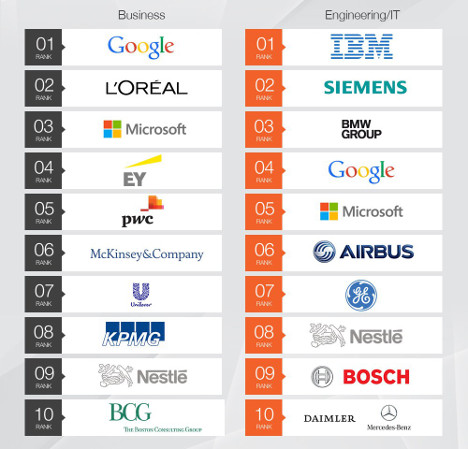Although IBM pipped Siemens out of its 2014 first-place ranking, BMW, Airbus, Bosch and Daimler/Mercedes-Benz loaded the rest of the leaderboard with German quality.
But it wasn't just German companies' reputation for high-quality products that made them leading choices for the future engineers and IT workers.
“Top employers are the ones that have made professional development the top thing on their agendas, and offer a creative and dynamic work environment too,” said Claudi Tattanelli, Global Director of labour market research firm Universum.
That might mean that the likes of Volkswagen, Bayer or BASF have some investing in their workforce to do to move up in the attractiveness stakes, after they placed 23rd, 24th and 26th respectively.

And Germany as a whole has some catching-up to do when it comes to the business side of the equation, where not a single German company was among the top 10 employers picked by undergraduates.
BMW was the top-placed German entrant at 13th, with others such as adidas, Deutsche Bank, Daimler/Mercedes-Benz and Volkswagen peppering the high teens and 20s.
“Business students prefer professional training and development, challenging work and opportunities for international travel/relocation,” Universum said in a press release.
The Universum survey asked 168,000 business and engineering or IT students in the 12 biggest European economies about their preferred companies and workplace environment.




 Please whitelist us to continue reading.
Please whitelist us to continue reading.
Member comments